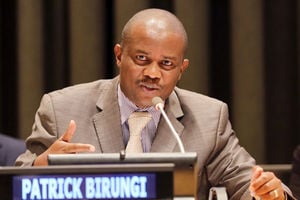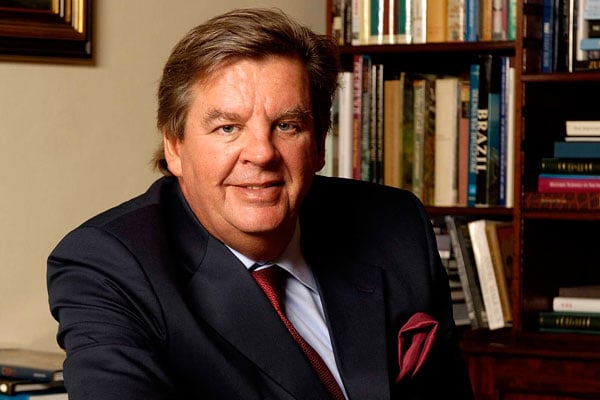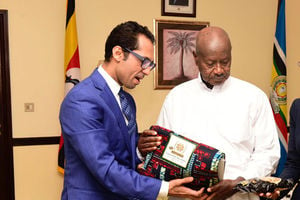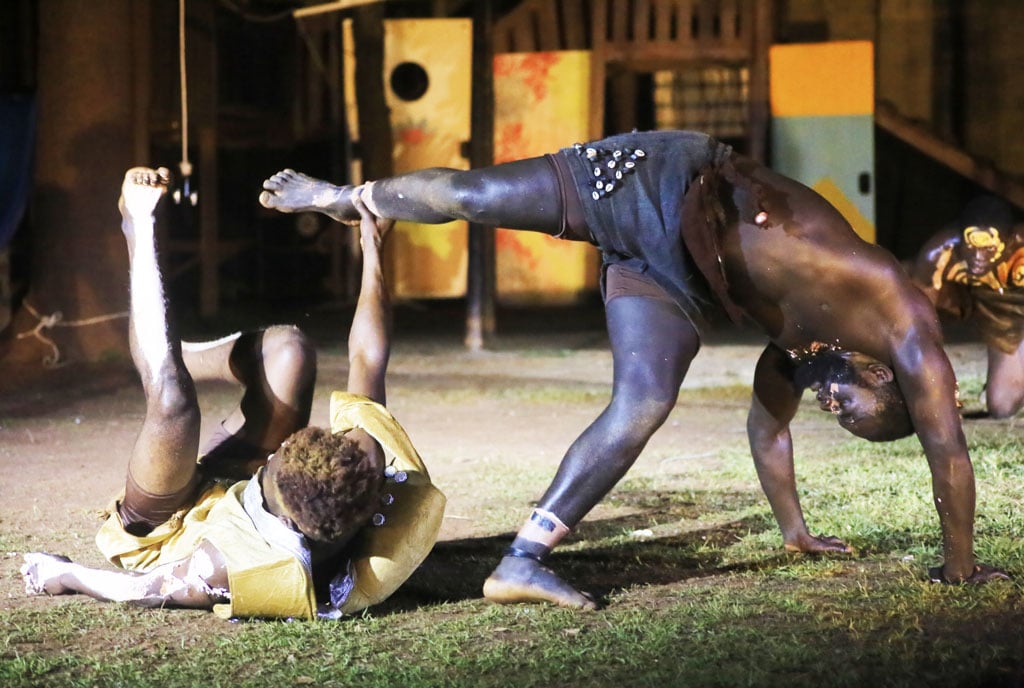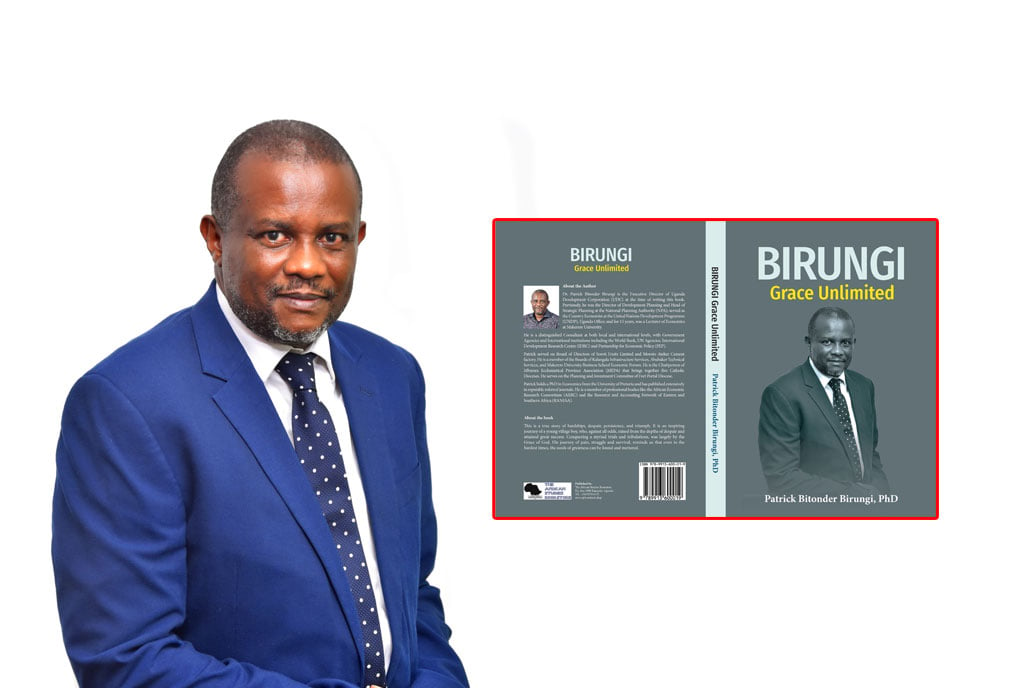
Patrick Bitonder Birungi and his life's book cover. PHOTO/COMBO
Despair, struggle, endurance, character and triumph are themes upon which this book revolves. The seven chapters of Birungi: Grace Unlimited speaks about a journey well-trodden and lit by God’s unlimited grace.
From running away from people threatening to eat him alive, twice being robbed at gun point; first in Bwaise a Kampala suburb and later in Pretoria, South Africa, swimming in muddy swamps and having to pay to watch butterflies in Sweden, planning for the country to heading a strategic national agency. It has been nothing short of struggle, endurance and triumph.
The author, Patrick Bitonder Birungi, dedicating the book to “… the people who fathered me…” speaks volume about his upbring. Raised in Mukunyu, a village in rural Kabarole, now Kyenjojo District, he talks about not only being ‘fathered’ by different women and men, but also whose carrot and stick approach helped to shape his formative years.
In the foreword, Tom Butime acknowledges that for an author to come from such area to be what he is, is not only the efforts of those who ‘fathered’ him, but also God’s grace.
The sub-title Grace Unlimited is an affirmation that whatever he is now is by God’s grace. Many of his childhood friends have either transited into another world, while others never made it beyond the confines of villages they came from.
In chapter two, where Birungi calls himself an academic nomad, he describes his struggles with his mother to make ends meet. Although he puts the reader in suspense when he speaks more about his mother, at the beginning, he introduces his father at the moment, when he was facing a bleak future.
“Meeting my father in Masindi was an opportunity that came at the right time….. He told me he had made up his mind to take me to a boarding school….. I was elated.”
From not being sure of whether the following term he would be in school, then Birungi found himself joining some of the country’s best schools such as Nyakasura School and Namilyango College, before being admitted at Makerere University.
Like most teenagers, the author was not far from self-destruction when his entire class was expelled from school, months away from sitting their national examinations. “We were unruly and out of order. At that age we did not see the implications of our actions.” When given a second chance, he learnt his lessons. Moral of the story is that never let your mistakes today define your future.
Doing Physics, Chemistry, and Mathematics at A-Level, he read extensively in order to become an engineer. His dream career slipped out of hands, but he fortunately became one of the top economists in the country. After three years at Makerere as a student, the streets of Kampala welcomed him into the real world.
He started off by becoming a member of Makarere University Fluker’s Association. “Once in a while, I walked from Makerere to my cousin Deo Baguma’s residence in Zana, through Wankulukuku, a distance of about 15kms, to go get a good meal and walk back.”
In the midst of these challenges, he faced a test of character, when a well-wisher offered the author solution out of his struggles. “A very good friend told me a lady in Kasubi (read witch doctor) would help me get a job because she had helped many. ……
Born and bred in Christian families, this is not a proposal he wanted to explore, given that it was not in sync with his character and belief.” The author in this episode of his life, shows that shortcuts to one’s destiny are never a solution.
“Two weeks after this incident, he was offered a job as an assistant lecturer at Makerere University in the Department of Economics then.” This was the beginning of the making of the economist he is today.
The six months temporary employment was the author’s take off stage to what he calls “Building the nation.” By the time he left Makerere University, 15 years later, he was not only a PhD holder, but among the top economists in Uganda.
In his quest to build the nation, he joined UNDP as a country economist, from where he joined National Planning Authority, where he led teams in the drafting of the Uganda Vision 2040, National Development Plan II, among many other projects.
The author gives the reader a glimpse of what it takes to draft a National Development Plan. “We divided ourselves into two groups; one group worked the graveyard shift, nicknamed the late nighters, working until 4am, and the early morning team, the early raisers.
After developing several national and local government development plans, the author moved into implementation. As government was revamping Uganda Development Cooperation, he was appointed the first substantive executive director, to oversee government’s development through industrialisation.
Even with all these airs around him and the top positions he has served in, Birungi never forgets on whose mercies he relies. In the seventh Chapter, he takes us through his leadership role in church that gives him pride.
With his capabilities in chairing different church association and activities, he was blessed to host six bishops from the ecclesiastical province of Mbarara at his home. “It was beyond honour and blessing for me and my family.”
The author ends his life story, with a word of encouragement to people going through hardships. “My life as told above is no different, no matter what you are going through, have faith. Your time to shine is coming soon.
